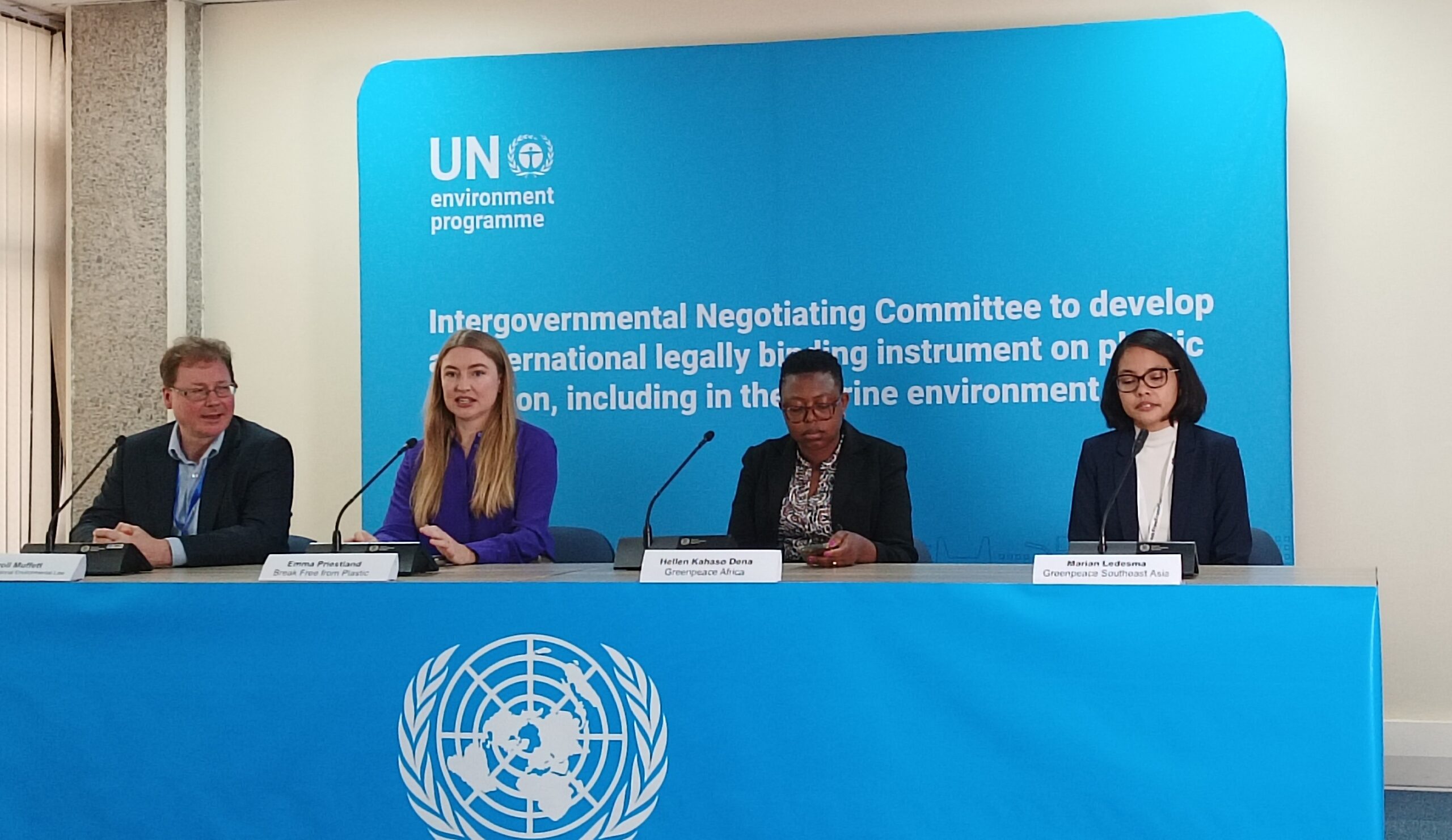On November 13, 2023, Emma Priestland of Break Free From Plastic was invited by Greenpeace to be part of the panel at an INC3 press briefing. These are notes from her presentation, making a case for real solutions when drafting the Global Plastics Treaty:
The BFFP movement represents over 3000 organizations and 13,000 individual supporters worldwide working on fighting plastic pollution across the whole plastic impact chain. This movement has helped us get to where we are today - with members working on every step of this treaty process. Over 200 NGOs have signed a manifesto for a future free from plastic pollution - stressing the urgent need for deep cuts in plastic production.
Together, our movement has exposed the scale, impacts and culprits of plastic pollution.
One way we do this is through brand audits - a huge citizen science project. Together we collected plastic pollution over 5 years in 87 countries, documenting the brands on over 2 million pieces of plastic.
Through this effort, we identified the world’s top polluters. It’s no coincidence that the world’s top plastic polluters are also the largest users and producers of single-use plastics: Coca-Cola, PepsiCo, Nestle, and Unilever.
This work should give us hope - the clear link between corporate single-use plastic usage and what is found in the environment suggests that with clear binding rules and targets that restrict single-use plastic products, and drastically reduce plastic production, we can reduce this pollution.
Our movement also works together to highlight and expose false solutions to this crisis.
Today, a new investigation by SourceMaterial, with input from many movement members has come out that exposes plastic credits and offsetting as a false solution. We will be releasing a more detailed report into this on Wednesday analysing the publicly available databases of Verra and PCX.
Serious flaws were found in additionality, transparency, adherence to basic auditing requirements, and the stated purpose of plastic being removed from the environment.
Plastic credits are predominantly generated through burning plastic waste in cement kilns (co-processing). 86% of PCX credits are generated from co-processing waste
Burning waste in cement kilns leads to emissions of heavy metals, particulates, and persistent organic pollutants (POPs) such as dioxins, and even chlorine gas. This can not be considered the removal of plastic pollution - only transforming it into a different kind.
There are serious doubts about project additionality - a key concept in offsetting. Additionality’ is the requirement that the credits are paying for an activity that would not have happened without the credits’ financial support
83% of projects on Verra’s database have already been operating before they have even sold a single credit. Making a mockery of Verra’s claims that finance from the sale of plastic credits can enable the development of such waste management infrastructure ‘that is otherwise not viable without the revenue from the crediting mechanism.
Our movement doesn’t only work on exposing the devastating impacts of plastic pollution and false solutions. We also develop and uplift solutions.
We are demonstrating Reuse Systems Solutions - that enable the delivery of goods to consumers when plastic production is drastically reduced and single-use plastics are no longer used.
We urgently need to scale these solutions - and for the treaty to prioritise reduction and promote reuse systems over recycling, bio-based, biodegradable or compostable plastics.
The treaty needs global definitions and minimum design and performance criteria for Reuse; Refill; Repair; and Reuse System/s, as well as targets, baselines and timelines for these. The treaty should incorporate sector-specific and material-agnostic reuse targets, along with measures to phase down plastic production, ban single-use plastics, and restrict harmful plastic polymers and chemicals.
All reuse systems must enable Just Transitions, and recognise the rights, knowledge and expertise of Indigenous Peoples, traditional knowledge holders, waste pickers and other informal waste workers, vulnerable and marginalised communities.
We know that this treaty is a heavy political lift, but civil society is behind you every step of the way, as well as the millions of people around the world that our organisations represent. We believe that this transformative treaty is possible.




